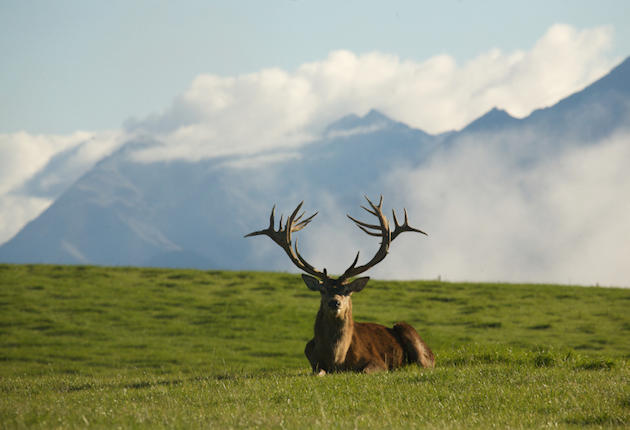New Zealand passed a law Tuesday recognizing animals as “sentient beings.” The Animal Welfare Amendment Bill updated the country’s Animal Welfare Act of 1999 by acknowledging animals have emotions and can experience pain and distress, and as such cannot be willfully or recklessly ill-treated. Animal owners are required to provide for the welfare of their pets or livestock; those who fail to comply will be subject to various penalty levels, with animal welfare inspectors issuing compliance notices.
While the bill does indeed have far-reaching consequences, a rumored ban on hunting is not one of them. Yet.
The bill was first introduced to the New Zealand Parliament in 2013. It revises what was once considerable acceptable in livestock and product testing, outlawing surgical procedures and cosmetic testing while endeavoring to prevent and punish animal abuse of various kinds.
Animals rights activists were, expectedly, very excited by the bill’s passing. However, some media outlets made an overreach when they claimed hunting in the land of stag and chamois had also been banned. Higher Perspectives wrote “All hunting and capture of wild animals will be illegal.”
Clause 17 of the bill concerns the “ill-treating, hunting, or killing [of] wild animals or animals in a wild state.” While a cursory glance at the bill seems to imply “No More Hunting,” the bill’s sections 30A-E insist this is not the case. Section 30B reads:
Nothing in this Act makes it unlawful to hunt or kill:
- any animal in a wild state
- any wild animal or pest in accordance with the provisions of the Wildlife Act of 1953, the Wild Animal Control Act of 1977, the Conservation Act of 1987, the Biosecurity Act of 1993, or any other act
- any other wild animal or pest
- any game animal in accordance with the provisions of the Game Animal Council Act of 2013
- any fish caught from a constructed pond
Hunting and fishing done inside the country’s safari parks is also legal.
Animals can undoubtedly feel pain and distress, and anyone who has ever owned a gundog recognizes that they have unique personalities and quirks. The danger in the bill is the wording; animals are listed as “like humans.” While hunting is currently allowed under the bill, it only requires a small tweak of the amendment to list hunting as “murder,” as many animal rights activists currently consider it.
The idea of animal rights activists policing hunters isn’t as far-fetched as it seems. According to the The Guardian, members of the Society for the Prevention of Cruelty to Animals are recognized as animal welfare inspectors and officially designated government appointees. Under New Zealand law, SPCA investigators can file animal cruelty charges — authority that was present as early as 2010. The new bill adds more power to the inspectors.
Hunting remains legal in part because of its economic input to the company. New Zealand goes so far as to list hunting as a tourism pursuit, marketing its European-introduced game species as a draw to foreigners. It even lists a recommended minimum caliber (.270) on its official website, along with information for those bringing firearms through customs when they arrive. “Ammunition,” the site says, “is readily available for all common calibers” when you get there.
But the bill’s passage begs the question: If New Zealand has went so far toward recognizing animals as sentient beings, how long will it allow hunting to take place? That remains to be seen, but savvy hunters would do well to take their trips to the country soon.


This is very disappointing, Tim I hope a hunting accident for you and your killer friends, your so excited and briming with emotion for your bloodlust, sociopathic killers are not gentlemen. There may be an insurgence, but it is only temporary as your kind is being expsosed as a movement that is not going away.
Very little risk of hunting being banned in NZ gentlemen, hunting is going through a resurgence here with several new home grown hunting shows, magazines and forums generating plenty of interest amongst our public & youth. It is also part of the Kiwi psyche to a large degree with most extended families having one or two Hunters among them.
Or you can, you know, not kill them at all. Hunting isn’t a sport, it’s cowardice.